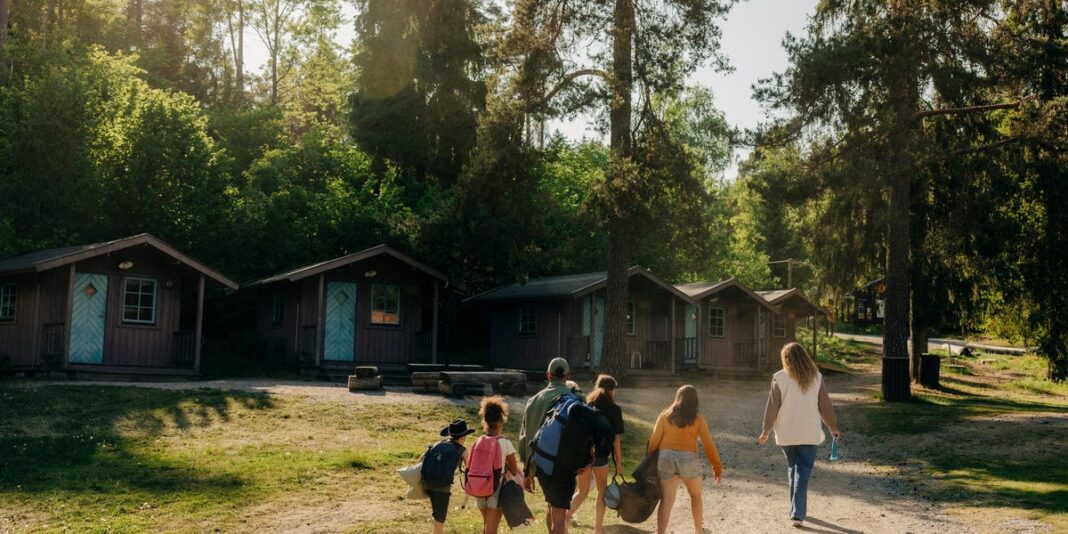Travelers are still choosing short-term rentals in large numbers, but there is a glut of places to stay left over from the Airbnb gold rush of recent years.
Ahead of summer 2024, hosts face pressure to stand out from all the other listings in their areas. Adding additional stress is the increased unpredictability of travelers themselves — hosts say guests are booking trips more last-minute than the advance-planning of years past.
As recently as March, listings across Airbnb and Vrbo stood at 1.57 million across the country, a 12.3% increase even from the same time last year, according to analytics site AirDNA. Average occupancy for hosts, or the number of nights they’re booked each month, improved slightly by 2% compared to last year, though March 2023 represented a 4% drop from 2022.
To protect their margins, hosts are turning to different strategies to bring in returns.
Some hosts are turning to social media to lure summer guests, hiring local influencers to create video reviews of their properties and trading free getaways for promotional photos. Meanwhile, professional hosts, which AirDNA defines as anyone with more than 20 listings, look to leverage their brands and manpower into booking directly with guests — bypassing the fees associated with the major platforms.
“If I could, I would want them all to be direct bookings,” said Emily Burke, a host who manages 40 listings in Tulsa, Oklahoma.
Big-time hosts turn to direct booking, but it comes with risks
Direct booking is when a guest reserves their stay on a property’s personal website instead of through a major platform like Airbnb, Vrbo, and others.
Arizona host Rick Kenworthy, who manages 91 listings in the Scottsdale area near Phoenix, said he’s made direct booking a priority.
Kenworthy said he increased the percentage of direct bookings to 25% in the first quarter of 2024, up from 10% during the same period last year — which he said translates to $500,000 more in revenue. Kenworthy offers a 5% discount if guests book direct, bringing a $350-a-night stay down to $330.
The proposition in direct bookings is that both parties save on fees, creating a lower price per night for guests and allowing hosts to keep the entirety of the earnings.
Kenworthy’s strategy has been twofold. First, he tripled his property-management company’s email distribution list by using Wi-Fi capture technology that stores emails when guests log in during their stays. He then emails out special offers with links to the direct-booking site. Second, he’s invested in branded items like coffee cups and pens that fill each of his properties, hoping to build familiarity with customers.
“We’re not force-feeding anybody,” he told Business Insider. “But at the end of the day, it comes down to dollars and cents.”
For some hosts, though, the prospect of striking out on their own is too daunting. They may be wary of stepping away from Airbnb, Vrbo, Expedia, and others, both for the insurance protection offered through those sites and the exposure that comes from their massive pool of travel-hungry users.
Missouri host Ryan Villines, who volunteers for Airbnb as a community leader for his region, believes the risk of direct booking is greater than the reward.
With direct bookings, hosts are responsible for collecting the proper paperwork for background checks and payment information, and they don’t have the additional insurance offered by the major platforms.
“If something goes sour or someone lights your house on fire, there’s some protection,” said Villines, who manages four properties near the popular vacation destination Lake of the Ozarks. “If you’re doing direct booking, that’s super risky.”
Hosts turn to influencers to tour their properties on social media
Burke, the host with 40 listings in Tulsa, said guests have been shifting toward last-minute stays — which is stressful for hosts relying on their business.
Burke predicts she’ll end May with around 58% occupancy, but just weeks ago she was only booked for 30% of the nights in May.
In an effort to attract more bookings overall, she’s begun working with a local influencer with 50,000 followers. So far, they’ve already filmed one of Burke’s short-term-rental properties near the popular Tulsa park known as the Gathering Place and have plans to film another near a “hip shopping district” known as Cherry Street.
“Both of those are location, location, location. So people know they can stay in really cool areas and at beautiful properties with our business,” Burke said.
Burke declined to disclose how much she is paying the influencer to feature her properties but said comparable digital marketing services cost $1,000 a month and still require Burke to do much of the editing, posting, and content strategy.
“That’s not my jam,” Burke said. “I’m not a video editor. I don’t have a big following.”
Villines, the host with four Lake of the Ozarks properties, said he has struck deals with influencers, trading free stays at his listings for packages of content.
Villines said that even though he expects his 2024 summer bookings to drop by about 10% from last year, he’s able to use those unbooked nights for content swaps to improve his marketing.
He’s given content creators who’ve reached out to him through Airbnb two- or three-night stays in exchange for up to 50 professional photos he can use for the property’s Airbnb profile or a well-composed marketing video that might otherwise cost $500 to $1,500.
“Because I’m down in numbers, I have more availability for nights that I could swap services,” he said.
Influencers can also help promote direct booking, Burke said.
When the influencer eventually posts a link to one of her properties, Burke asks that it direct viewers to her business website instead of the Airbnb listing.
Burke said she hopes Tulsans following the influencer are inspired to book through her and save on fees.
“My approach is that she’s really focused on bringing guests to our houses that are booking directly,” she said.
Source link









